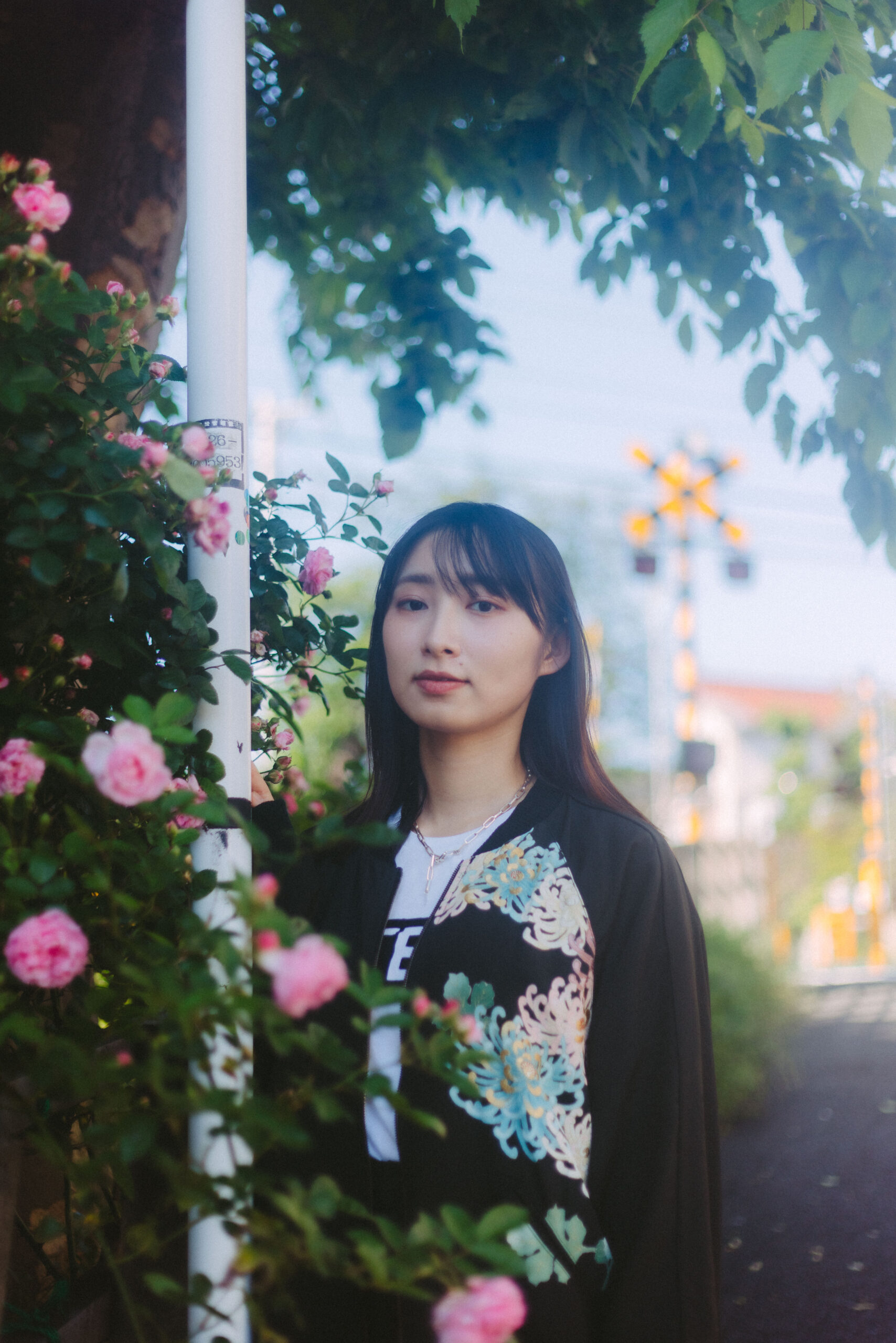INDEX
A Teenage Devotion to Shamisen, Shadowed by Self-Doubt
Let’s go back to your early years for a moment. You won first place in the A-Class Women’s Division at the Tsugaru Shamisen National Competition as a high school junior, and later got into Tokyo University of the Arts on your first try. It seems like what began as a passionate hobby became something much more serious. But were there moments when you felt stuck or thought about quitting?
Komada: Growing up in Mie, there weren’t many people around me playing the shamisen, especially no one my age. Even when I went to national competitions, where everyone was playing shamisen, it didn’t feel like a community. It was more competitive than friendly. The backstage atmosphere was always tense, and I didn’t really have any friends I could call shamisen peers. With only one big competition a year, staying motivated was hard. Looking back, I think frustration was what kept me going most of the time.
What really kept me grounded, though, was performing. I started doing that when I was seven, mainly at local senior homes. When people said things like “That was lovely” or “You’re really good,” I felt so encouraged. I’d think, Next time they invite me back, I want to play something new. That feeling gave me something to work toward.
It sounds like your relationship with the shamisen could be isolating at times. And when you’re a kid, there’s often a desire to share your interests with friends—whether it’s through trending anime characters or the music you like. But what you were doing wasn’t easy to connect with socially. Did that ever bother you?
Komada: Definitely. Now that I’m older, I’ve come to feel proud of what I do—like I’ve found something uniquely mine. But back then, I felt self-conscious a lot. Everyone around me was playing piano or violin—more popular, Western instruments—and here I was with this old, traditional Japanese instrument. I had a bit of a complex about it. I sometimes thought playing a sport would’ve been cooler or easier to relate to. I didn’t expect people to understand, so I gave up on the idea of sharing that part of myself with my friends.

It sounds like those feelings might have been contradictory—did your sense of insecurity coexist with your love for the shamisen?
Komada: Absolutely, they coexisted. When I realized that others just wouldn’t understand, I thought, “I don’t need to force anyone to get it,” and I naturally accepted that. I wasn’t hiding my shamisen playing, but I also didn’t bring it up at school myself.
You know how schools have those weird moments during assemblies where they call up students who’ve won awards? I really hated that. In clubs, people usually get recognized, but shamisen wasn’t treated that way, so I never reported my achievements. The school wouldn’t do anything unless I said something, and that actually felt right for me. So I kept shamisen completely private, separate from my school life.
When did your mindset shift, and you started seeing shamisen not just as a private passion but as a career?
Komada: I always loved playing, but at first, I was aiming for a more practical career like nursing or nutrition. When I was in my second year of high school and had to decide seriously on my future, I picked schools focused on those fields and submitted my preferences. But during my parent-teacher meeting, a teacher said, “You’ve won first place in Japan for shamisen—are you sure you want to give that up?”
That really stuck with me. The phrase “University is where you study what you truly want to do” hit home. I started wondering if maybe I was headed in the wrong direction.
I’m competitive by nature, so from then on, I decided without hesitation that if I was going to pursue it, I wanted to aim for the very best. Even though I knew little about it, I set my sights on Tokyo University of the Arts. Looking back, if I hadn’t passed the entrance exam on my first try, I might have stopped playing shamisen altogether. After I got in, I had no doubts and began thinking seriously about becoming a professional.

Komada’s mother: There were very few people around us in the same situation, and information about the entrance exams was limited. In a way, I think it was because we didn’t know much that she was able to do it. If we had understood how difficult it was, she might have been intimidated—but maybe it was better that she just tried without overthinking it.

























